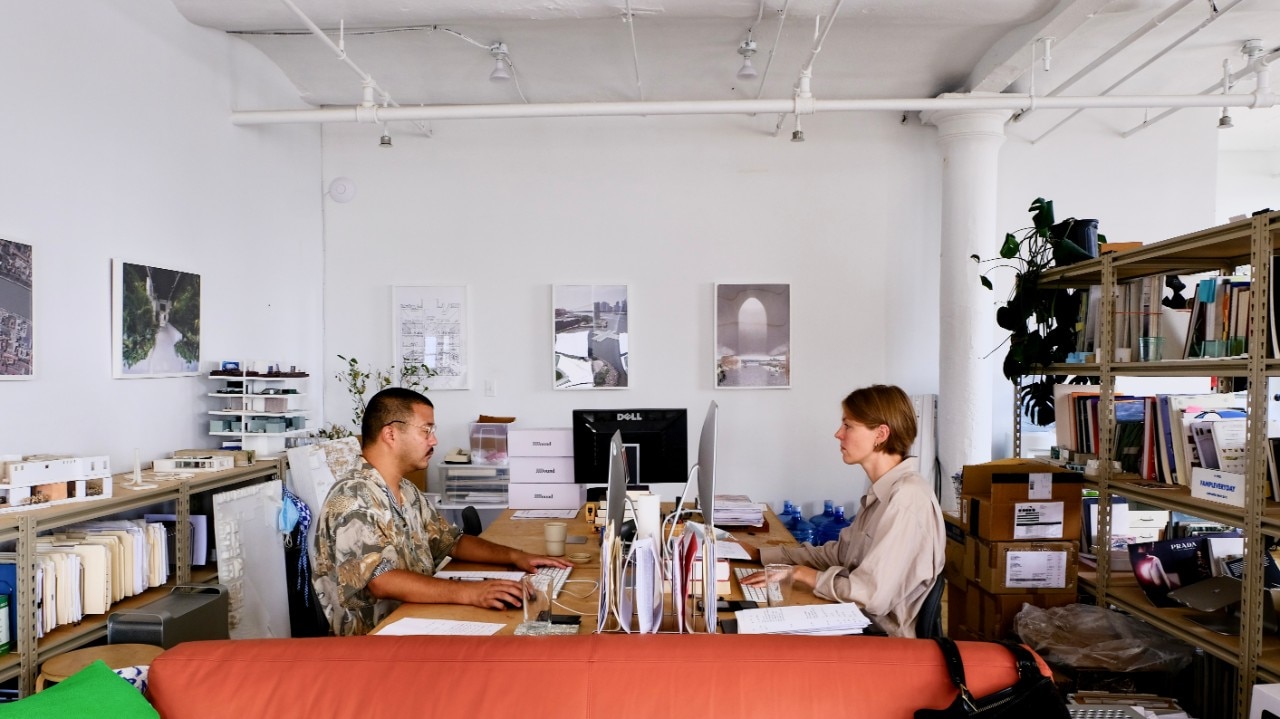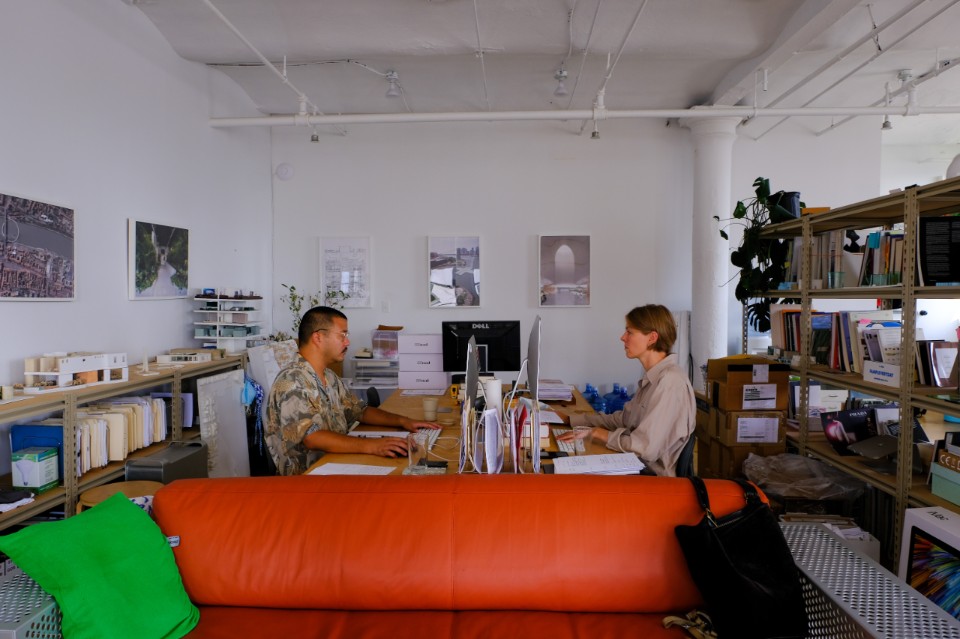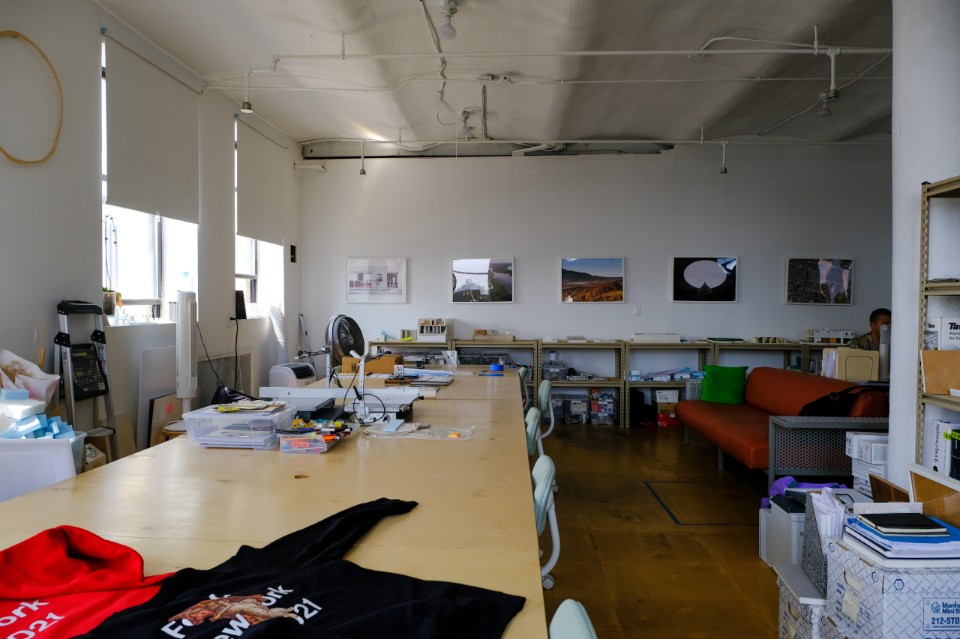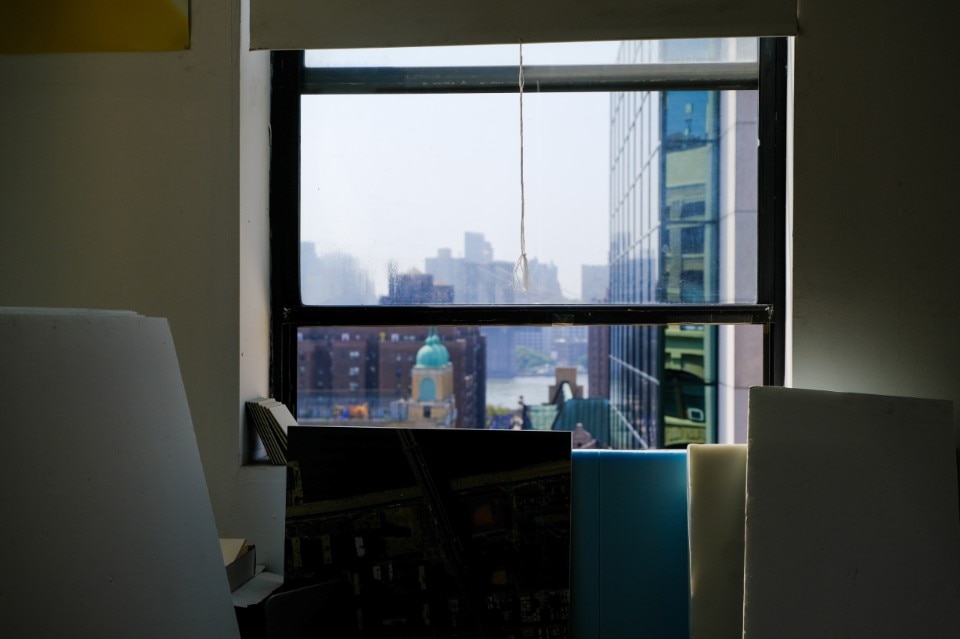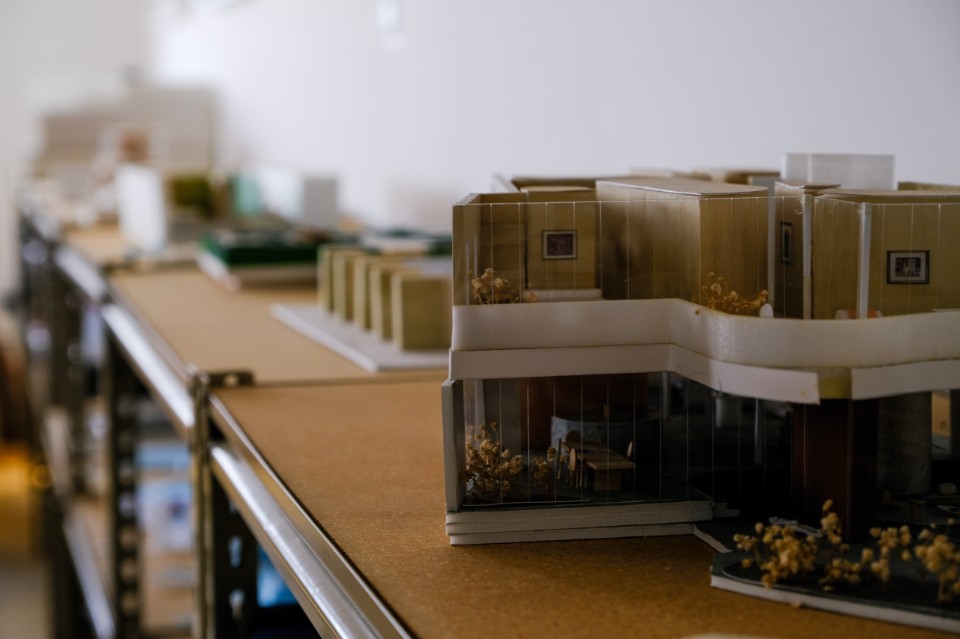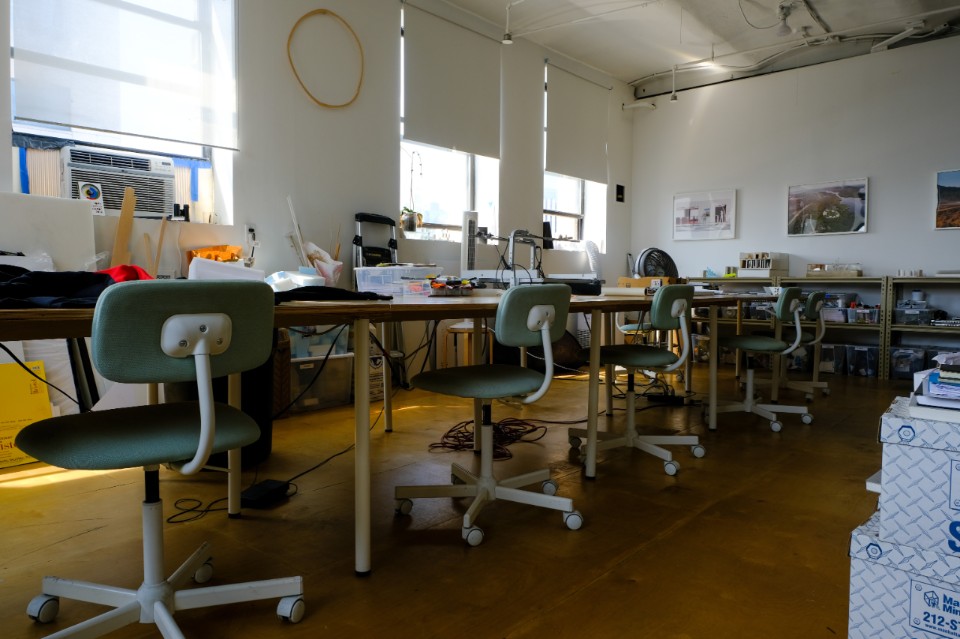For many knowledge workers, the pandemic wasn’t just an unexpected scenario requesting fast adaptation but an occasion to experiment with new ways to work—a new array of practices and relationships that we perhaps trivialize simply definig as “remote working”. An example comes from Food New York, the architecture studio founded by Dong-Ping Wong. I meet with him and operations director Bella Janssens at their office on the last floor of a Chinatown building.
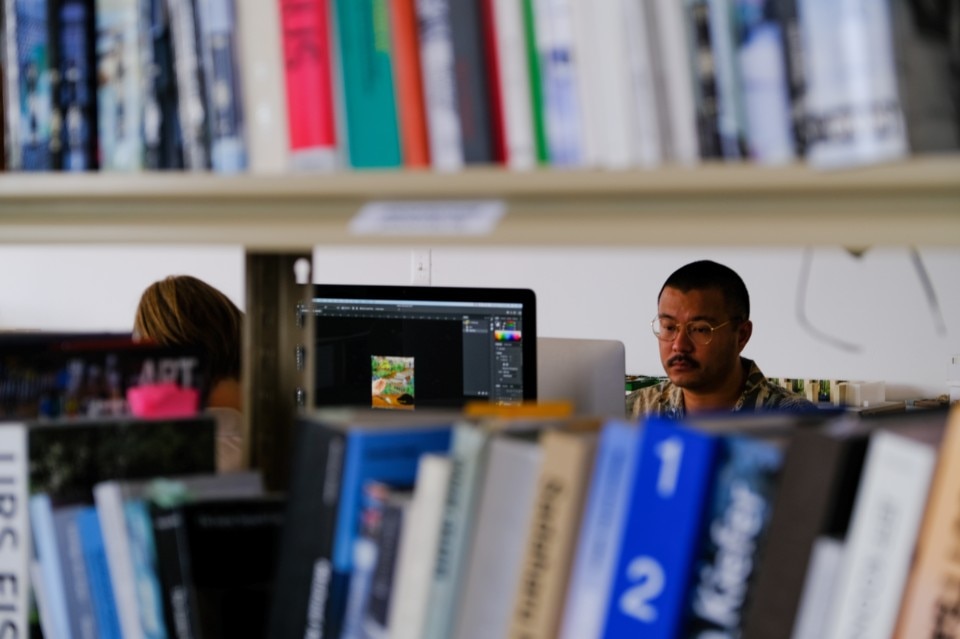
“One year ago we shut the office“, Wong recalls. It was spring 2020. Then, slowly, he started to come back by himself: he lives nearby, he explains, and the building was half empty. “We all started coming back as a team just a few months ago, but at that point, something had changed”, continues Bella. We talk with our masks on, even if at this point – it’s the end of July 2021 – there’s no indication about it. But the Delta variant is raging in the city. “More or less half of our team went back to their home countries or states. So we were no longer a New York office. About two months ago, we decided to have everybody that’s in New York coming once a week for a meeting. Anybody that’s not here gets called in on Zoom”. When I arrive, on a Monday morning, they’ve just met. “Later a couple of us are going to a construction site that’s nearby. I’m here almost every day, but the others, it’s up to them to decide if they want to come in”, explains Wong. “To make a model or on the creative parts of a project concept schematics, it helps to be in person. Other things are good to do in remote mode”.
We discuss how much empty office space there’s in the city, and about the fact that “nobody has a clear sense of that to do” about that: neither the companies nor the landlords. It’s a kind of new equilibrium between waiting, and adapting.
“Food New York is our name, and we were always a New York-based office, remote work was never an option before the pandemic”, says Wong. In a subsequent conversation at the end of August, Janssens told me that of 6 people working at Food, only one has not yet returned to New York.
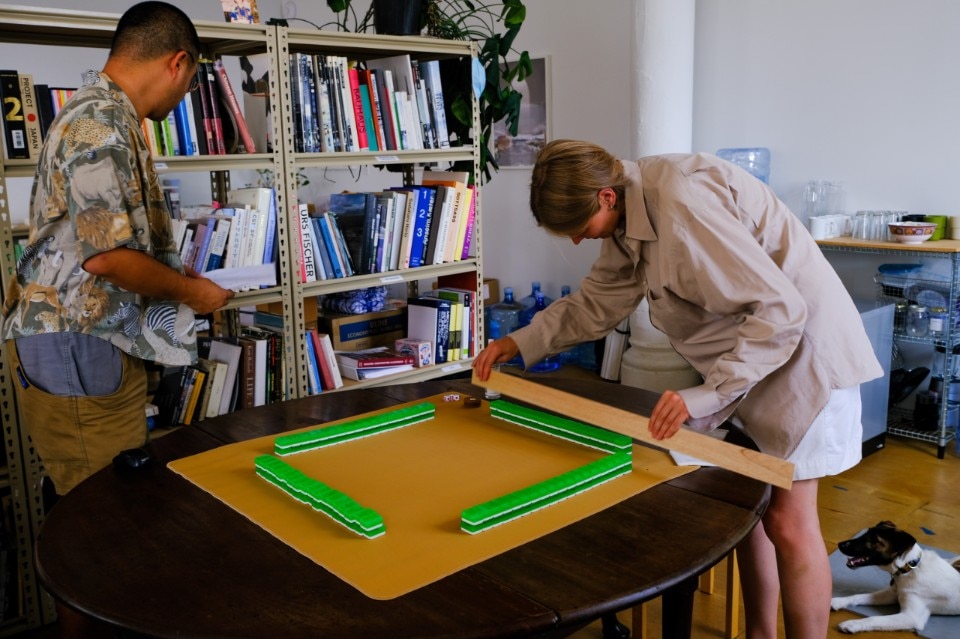
At Food New York, the lockdown was the occasion to experiment with something new. That started as a rethinking of Summer Fridays, which are something pretty standard in U.S. offices between Memorial Day and Labor Day, and so between May and September, and involve flexible scheduling that allows people to leave earlier, or to take the whole day off on Friday. “We’ve been doing it for a while, but now we’re doing what we call Food Fridays: the idea is that on Friday you are still getting paid, but you do your independent work”, explain Wong and Janssens. The only ask is that the projects are only tangentially architecture related.
“Some people were building a piece of furniture, Bella was working on a film, some people on their own homes or a book”, says Wong. “Everybody was going nuts, stuck at home last year, so working four days, and having the fifth for you to use, is quite nice, I think. And I hope that makes the office work better”.
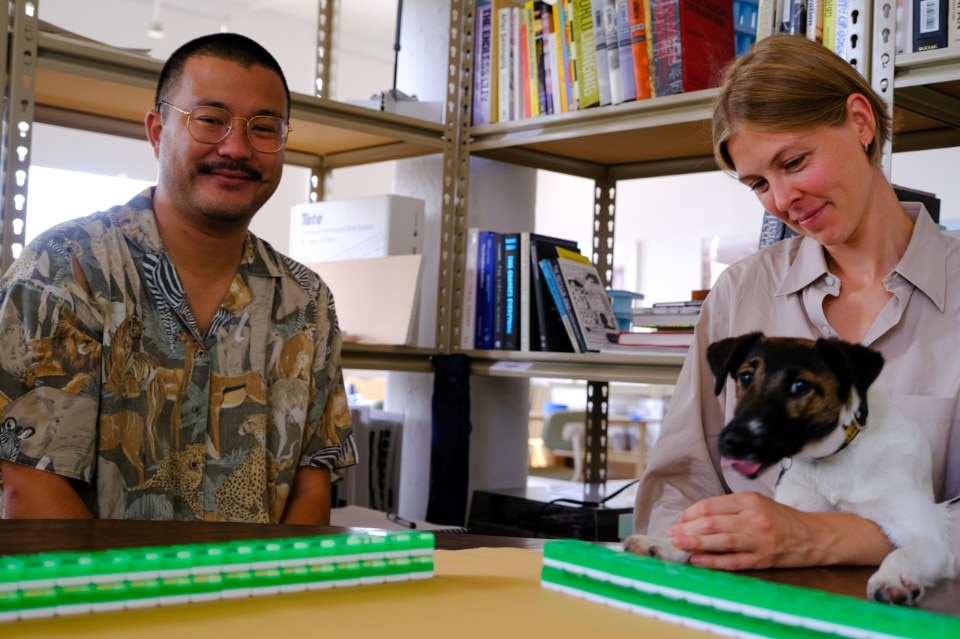
Janssens points out how essential it was for everybody to share the same working space, before the pandemic. But during the last year and a half, something has changed. “People became more autonomous with remote working, and maybe that’s something beneficial to a group of designers working together”. And so, they started to talk about how to evolve Food, looking at other industries, like skate sponsorship teams or record labels. The idea of Food Fridays was tied to exploring what it could mean to be an independent designer, but with the comfort of working under “the Food umbrella”, as Bella bills it. “An infrastructure with a lot of experience that’s behind you”, adds Wong. “It’s a chance to work differently and learn something: it’s much more eclectic, much more diverse”.
All images in this article were taken with a Fujifilm X-Pro3, kindly loaned by the brand.


